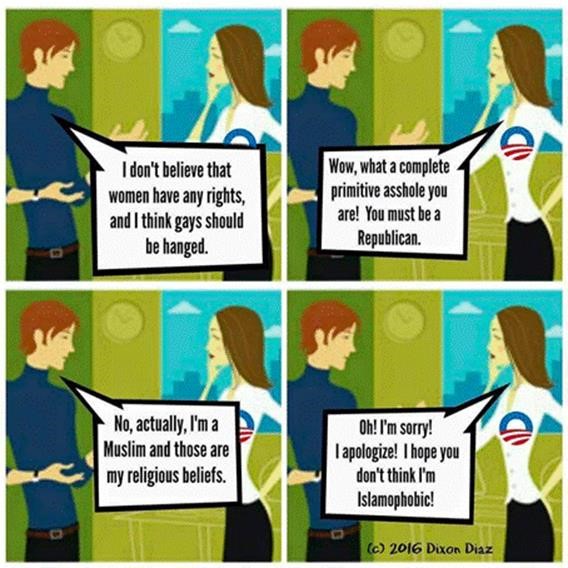When I woke this morning, I scanned social media, brewed some coffee and shortly after checked email. I was saddened and shocked to discover in my inbox a news alert that at least 50 people were dead and more than 50 wounded in a mass shooting in a gay nightclub hours earlier in Orlando.
The next thing that struck me was the complete absence of any comments or condolences in my social media feeds. It didn’t make any sense – we’re on the west coast and it was already the afternoon out east. When the attacks in San Bernadino happened and before anyone knew it was an act of jihad, as I wrote at the time, people were already calling for gun control legislation.
I went to some news sites to find out more and learned that the authorities already suspected Islamic extremism and as the day has progressed, we’ve learned the killer pledged allegiance to ISIS and was on the FBI’s radar before the attack. Does this explain the initial inertia on social media? Are people afraid to call out Islamic extremism for what it is? And is this why since 2008 jihadists have successfully carried out attacks in Fort Hood, Boston, Garland, San Bernardino and Orlando?
I suspect this is part of the problem. The first post I eventually saw on the attack was from someone calling for “common sense gun laws”, whatever they are. Naturally there was no mention of addressing terrorism or Islamic extremism. Prioritizing gun laws in the face of an act like this is wrongheaded. It’s like putting a Band-Aid on a gaping wound – it might slow the bleeding, but it won’t solve the problem.
Now it’s not that I’m against (as I’ve written before) an “all of the above” approach that includes debating gun control measures. But when the root cause is extremism, that should be the focus. Terrorists are resourceful and don’t need guns to cause mass casualties, take for instance 9/11, Boston or more recently Brussels.
It’s instructive to note that all the successful attacks I listed above took place after the current administration assumed office. The Bush administration, for all its faults, was successful at protecting the homeland and preventing any attacks following 9/11. It also didn’t shy from using phrases like Islamic extremism and jihad, while at the same time noting the war on terror was not a war on Muslims.
Contrast this with the current administration’s approach, which in addition to allowing the spread of violent extremism across the Middle East also dropped the phrase “War on terror” and has steadfastly refused to use terms like “Islamic extremists” following any of the attacks at home or those in Paris and Brussels. It blamed the Benghazi attack on an anti-Muslim video and it famously called the Fort Hood attack “workplace violence”.
When leaders behave like this, citizens take note. Neighbors of the San Bernardino terrorists had suspected they might be up to no good, but were afraid to report anything for fear of being labeled racist.
I’m not calling for a return to all of the Bush-era policies. We can debate with hindsight whether there was overreach. But their focus and results were clear – keeping the homeland safe. On the other hand, the Obama administration’s policy to wind down wars, extract America from the international stage and not offend anyone, while well intended hasn’t kept Americans or others safe. On the contrary, Islamic extremism is on the rise, those with jihadist tendencies are being inspired, our allies no longer trust us and our enemies no longer fear us.
We need to change course, call these acts what they are and create a culture where people aren’t afraid to report potential extremists in their midst. We also need our political leaders to make sure they debate measures that are needed to prevent future jihadist attacks. This should be the priority. Committees discussing “common sense gun laws” are a distraction in the wake of today’s attacks.
Leave a Reply
You must be logged in to post a comment.